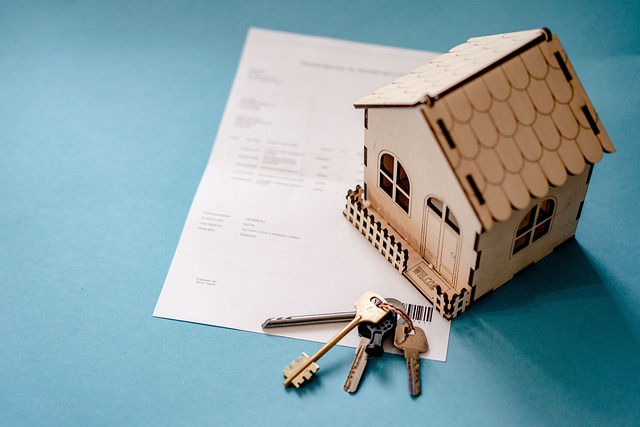The Annual Property Tax (APT) in Singapore is a significant tax revenue contributor managed by the Ministry of Finance. It applies to residential and commercial properties, with tax rates that increase progressively based on the property's Annual Value (AV), which can be assessed through market rental income or valuation comparisons for owner-occupiers. Property owners are encouraged to manage their APT liabilities effectively and utilize resources from the Inland Revenue Authority of Singapore (IRAS) for guidance. For strategic financial planning, property owners in Singapore can consider savings plans with compound interest benefits, dedicated loans from financial institutions, or IRAS installment plans to ease cash flow challenges. The government provides assistance programs for eligible residents, including concessionary APT rates and schemes like the Quarterly Remission Scheme and the Necessitous Persons' Scheme (NPS) for elderly citizens and low-income earners, respectively. These measures ensure that the APT system in Singapore remains fair and accessible, with support available to those who need it most.
Managing the financial aspects of owning property in Singapore involves a pivotal understanding of the Annual Property Tax (APT). This comprehensive guide delves into the intricacies of APT, offering strategic financing solutions to ensure smooth tax payments. From grasping the framework that governs APT to exploring government assistance programs designed to ease the burden, this article equips property owners with the necessary tools and insights to effectively finance their APT obligations in Singapore.
- Understanding the Framework of Annual Property Tax (APT) in Singapore
- Strategies for Effective Financing of APT Payments
- Government Assistance and Subsidy Programs for APT in Singapore
Understanding the Framework of Annual Property Tax (APT) in Singapore

In Singapore, the Annual Property Tax (APT) is a levy imposed on all forms of property annually, serving as a significant component of the country’s tax system. The Ministry of Finance oversees this tax, ensuring that it is administered and collected in a manner that aligns with Singapore’s economic landscape. Property owners are required to pay APT based on the value of their property, which is determined by the Annual Value (AV). AV is derived from the rental income that the property could potentially generate if it were rented out at market rates, or for owner-occupied properties, a valuation based on similar properties in the vicinity. The tax rates are progressive and vary according to the classification of the property and its value, encouraging property owners to consider the financial implications and manage their property taxes effectively.
To navigate the APT framework, property owners in Singapore have several avenues for understanding and managing their obligations. The Inland Revenue Authority of Singapore (IRAS) provides detailed guidelines and assessment criteria on their official website, offering clarity on how AV is determined and how tax rates are applied. Additionally, property owners can seek advice from financial advisors or tax professionals who specialize in property tax matters to optimize their tax payments and explore tax relief measures for which they may be eligible. Understanding the intricacies of APT is crucial for property owners to fulfill their fiscal responsibilities and maintain compliance with Singapore’s tax regulations.
Strategies for Effective Financing of APT Payments

Managing the financial obligations of Annual Property Tax (APT) in Singapore can be a strategic endeavour, particularly for property owners. To ensure that APT payments are made efficiently and without undue strain on cash flow, it’s advisable to explore various financing strategies tailored to individual circumstances. One approach is to set aside funds specifically for this purpose through a savings plan or a dedicated investment account. This method leverages the time value of money, allowing your savings to accumulate interest over time, which can then offset a portion of the APT due.
Another effective strategy involves utilizing existing financial products designed for property tax financing. Some financial institutions in Singapore offer loans specifically meant for paying property taxes. These products often come with competitive interest rates and flexible repayment terms, making them a viable option for property owners. Additionally, property tax installment plans are available from the Inland Revenue Authority of Singapore (IRAS), which permits taxpayers to spread their payments over the year, thereby easing the burden of a lump-sum payment. By carefully considering these financing options and planning ahead, property owners in Singapore can navigate the financial landscape with confidence and maintain compliance with tax obligations without compromising their financial stability.
Government Assistance and Subsidy Programs for APT in Singapore

In Singapore, property owners are subject to an Annual Property Tax (APT), which is levied by the Inland Revenue Authority of Singapore (IRAS). For residents who find it challenging to meet their APT obligations, the government has established a suite of assistance and subsidy programs. These initiatives are designed to support those who are elderly, low-income, or living in properties with certain occupancy statuses. The IRAS offers concessionary rates for qualifying owners of properties occupied as homes, which can significantly reduce the tax burden. Additionally, the Quarterly Remission Scheme allows senior citizens aged 75 and above, who are registered for Property Tax concessions, to have their tax payable quarterly instead of annually, easing their cash flow concerns. Furthermore, property owners who are both Singapore Citizens and permanently residing in Singapore can apply for the Necessitous Persons’ Scheme (NPS) if their monthly household income is not more than S$1,900. This scheme provides additional assistance with their APT payments. These government-supported programs underscore the Singaporean government’s commitment to providing financial aid and ensuring that property taxation remains a fair and equitable component of the nation’s fiscal framework. Property owners in need of such assistance are encouraged to explore these options and apply for the relief they are eligible for, thereby alleviating the financial strain associated with Annual Property Tax Singapore payments.
